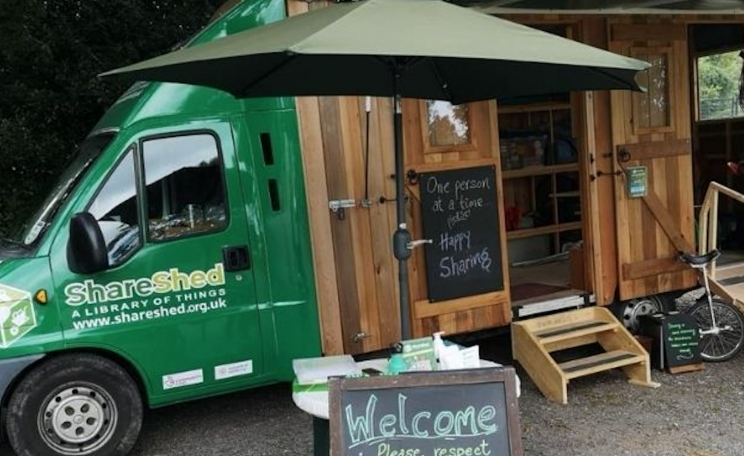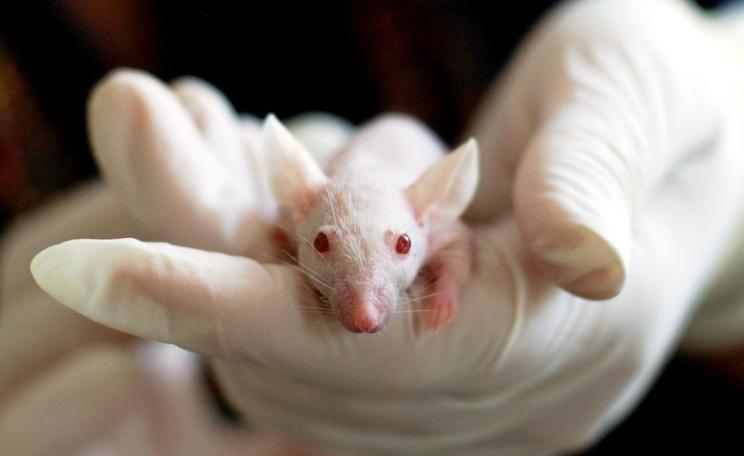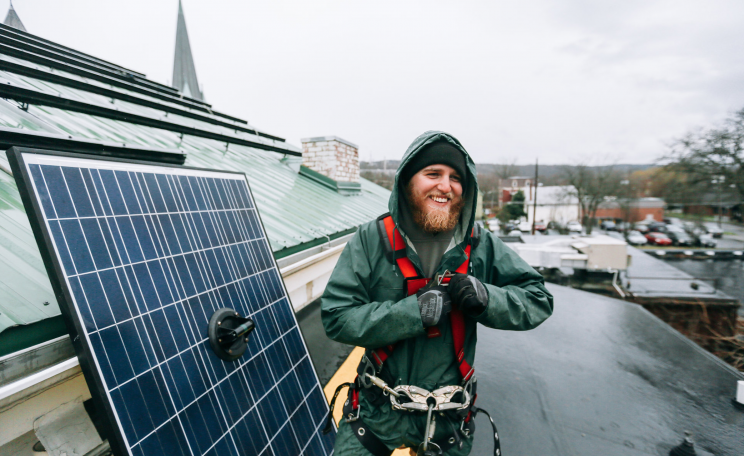-
Every now and then a person or an idea grabs our attention so much that we physically sit up straight in our seat and take notice. That happened to me last week, while listening to Vinay Gupta, who I interviewed at an Oxford Media and Technology Network event, which you can watch here.
Gupta launched the second largest cryptocurrency, Ethereum, and is one of the brains behind the ‘internet of agreements’. He also helped design a shelter for refugees and disaster zones which could help in the coming climate refugee disaster (but that's another story).
Imagine if there was a technology that currently existed (albeit in a beta form) that could provide land rights to citizens in developing countries, prevent voter fraud in democracies, end inefficiencies in international supply chains and help solve the climate crisis? Imagine it was a technology that the majority of the public had little or no understanding of.
Shared reality
While most pundits and developers have obsessed with how the blockchain could transform our financial system through cryptocurrencies, in fact some of the most interesting developments have nothing to do with innovations such as BitCoin, despite the skew of media headlines.
The really groundbreaking work is happening in a space that owes its ethical allegiance to some of the counterculture movements that originated from places like ‘The Farm’ in Tennessee, a collective originating in the 1970s spreading ideas around non-violence and environmental activism.
Despite its apparent complexity, the idea at the heart of the blockchain is relatively simple. The approach divides up information into a series of ‘blocks’ which represent time, cannot be changed and are in a fixed order (hence block-chain). This relatively simple idea could help solve a myriad of complex problems, from the synchronisation delays that affect supercomputers doing transactions when separated by thousands of miles, to providing accurate contracts across different legal jurisdictions.
In essence, it can provide a ‘shared, universal, common operational picture of reality’.
While this could be used for all kinds of business reasons, there are also exciting potential solutions to a range of ethical problems. You could, for instance, accurately track the carbon impact of different goods and services - to create a labelling system on products showing its carbon in the same way nutritional information is presented in a traffic light on foods.
The same could be done for conflict minerals: if you could accurately show on a smartphone, for instance, that the minerals used in it had been involved in child labour or contributed to a civil war, that might change consumer behaviour and corporate processes.
Manifesto
That might seem like a lot of hype, but the ideas contained in Gupta’s ‘Mattereum Manifesto’ are worth paying attention to. The manifesto focuses on how the blockchain could help us tackle the climate crisis through reducing waste.
According to Gupta, there are huge inefficiencies in post-industrial capitalism, not least from two main factors: unreliable supply chains that waste energy and reduce value with unreliable products; as well as second hand markets that are costly in terms of time and money, something that could be reduced by creating reliable ledgers of information about products for resale.
Gupta starts from the point of view that our system is fundamentally broken. We are in thrall to consumption, driven by needs that are fed by huge swathes of targeted advertising manipulating our emotions to drive us to purchase things we don’t need by exploiting personal data we probably aren’t even aware we have shared.
One example he discusses is second hand markets. “Consider the quantity of stuff we buy in the course of our lives for what amounts to experimenting with our identity — goods we purchase to understand ourselves better, or to foment personal growth ... This process leaves residue: each of us has that stash of stuff sitting unused in closets, attics, and garages; the remnants of hobbies and identities which didn’t quite fit, and were set aside.”
The processes of getting rid of all this clutter are cumbersome - time to list it on Ebay or wherever, posting it, seeing reduced value because of fraud in the system all conspire to leave our goods stranded in attics and basements.
Mattereum
As Gupta points out: “There are tens of millions of metric tons of this kind of waste in America, and it all has value — if only we can find it. The problem, of course, is that the records describing what this stuff is were not passed on to us when we bought it the stuff.
"To sell it, we have to effectively recreate those records, and that labour is expensive. It’s hard to get motivated to tag things manually. What we need [is] that data stored with the object, and transmitted seamlessly to all future users. Mattereum Asset Passports do this, of course.”
Essentially, we need Google search for the physical world. If all of these goods were in the Mattereum ecosystem, then the groundwork is laid for both an efficient sharing economy as well as an agile market for second hand goods.
"Now, that search function for the physical world would be incredibly powerful, but obviously raises difficult questions about personal privacy and security, which Mattereum say they are actively working on solving.
The potential of the blockchain seems more than just breaking the monopoly of state-backed currencies, and could address some of the thorniest problems of modern society.
This Author
Alex Bigham is a consultant on communications, particularly around sustainability and technology.




